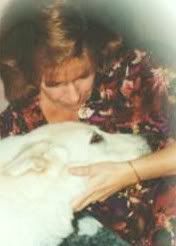Here's a portion of what Ferraro had to say:
AS the race for the Democratic presidential nomination nears its end and attention turns to the role of so-called superdelegates in choosing the nominee, it is instructive to look at why my party created this class of delegates.
After the 1980 presidential election, the Democratic Party was in disarray. That year, Senator Ted Kennedy had challenged President Jimmy Carter for the presidential nomination, and Mr. Kennedy took the fight to the convention floor by proposing 23 amendments to the party platform. When it was all over, members of Congress who were concerned about their re-election walked away from the president and from the party. The rest of the campaign was plagued by infighting.
In 1982, we tried to remedy some of the party’s internal problems by creating the Hunt Commission, which reformed the way the party selects its presidential nominees. Because I was then the vice chairwoman of the House Democratic Caucus, Tip O’Neill, the speaker of the House, appointed me as his representative to the commission. The commission considered several reforms, but one of the most significant was the creation of superdelegates, the reform in which I was most involved.
Democrats had to figure out a way to unify our party. What better way, we reasoned, than to get elected officials involved in writing the platform, sitting on the credentials committee and helping to write the rules that the party would play by?
Most officeholders, however, were reluctant to run as delegates in a primary election — running against a constituent who really wants to be a delegate to the party’s national convention is not exactly good politics.
So we created superdelegates and gave that designation to every Democratic member of Congress. Today the 796 superdelegates also include Democratic governors, former presidents and vice presidents, and members of the Democratic National Committee and former heads of the national committee.
These superdelegates, we reasoned, are the party’s leaders. They are the ones who can bring together the most liberal members of our party with the most conservative and reach accommodation. They would help write the platform. They would determine if a delegate should be seated. They would help determine the rules. And having done so, they would have no excuse to walk away from the party or its presidential nominee.
It worked. In 1984 I headed the party’s platform committee. We produced the longest platform in Democratic history, a document that stated the party’s principles in broad terms that neither the most liberal nor the most conservative elected officials would denounce. It generated no fights at the convention. It was a document that no one would walk away from. We lost in 1984, big time. But that loss had nothing to do with Democratic Party infighting.
Today, with the possibility that Hillary Clinton and Barack Obama will end up with about the same number of delegates after all 50 states have held their primaries and caucuses, the pundits and many others are saying that superdelegates should not decide who the nominee will be. That decision, they say, should rest with the rank-and-file Democrats who went to the polls and voted.
But the superdelegates were created to lead, not to follow. They were, and are, expected to determine what is best for our party and best for the country. I would hope that is why many superdelegates have already chosen a candidate to support.




